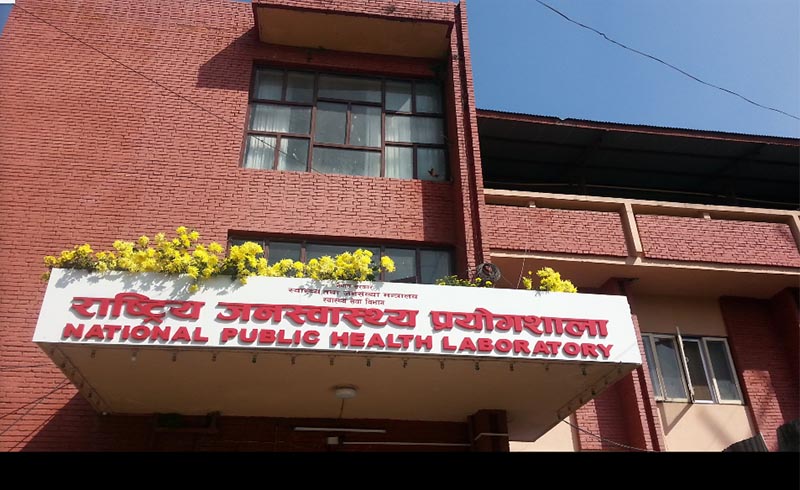Government set to begin pool testing to trace novel coronavirus infection
Kathmandu, May 8
The government, which has been criticised for not ramping up coronavirus tests even during the lockdown, has decided to resort to pool testing to identify new COVID-19 cases.
The National Public Health Laboratory has issued a circular to laboratories across the country to conduct pool testing using polymerase chain reaction method. The laboratory had issued the circular based on instruction from the Ministry of Health and Population.
“Testing will begin immediately and it will be done as per the protocol we have developed,” said NPHL Director Runa Jha.
Under pool testing, throat and nasal swabs of at least 10 people are collected. The samples are then collectively examined using PCR method.
“If the result is negative, all 10 people will be declared free from coronavirus disease. But if the result is positive, we will conduct individual tests of throat and nasal swabs of all 10 people to find out who has been infected,” said NPHL Virologist Shravan Kumar Mishra. “This will help us cut the cost significantly, as we will be able to conduct more tests with limited number of reagents and human resources.”
It costs around Rs 3,000 to Rs 4,000 to conduct a PCR test.
The government made this announcement at a time when it has been criticised for failing to rapidly expand PCR tests, which are much more reliable than rapid diagnostic tests. Almost 80 per cent of all tests conducted so far are rapid diagnostic. Many have cited fewer PCR tests as one of the reasons for detection of only 102 COVID-19 cases so far and have asked the government to ramp up PCR tests. As of today, the government has conducted 15,492 PCR tests. “Pool testing will help us ramp up PCR tests,” said Bikash Devkota, spokesperson for the health ministry.
In the initial phase, pool testing will be conducted among people staying in quarantine centres and among those who are at low risk of contracting the disease. Those facing high risk will have to undergo individual PCR tests. Over 15,000 people are staying in quarantine centres across the country.
According to the pool testing protocol, samples of persons will be collected within first five to ten days of joining the quarantine centre. The person who undergoes test will have to stay in the quarantine centre for 14 days even if s/he has tested negative. After 14 days, the person should undergo rapid diagnostic test even if his or her PCR test generates negative result. If the rapid test result is also negative, the person will be released from the quarantine centre and asked to self quarantine for another week.
These tests will be conducted in 14 laboratories across the country. “These tests will be done using PCR machines that can examine larger number of specimens. The laboratory technicians should be more careful while conducting tests as there are chances of contamination of samples,” said Mishra, adding, “Pool screening can also help us trace asymptomatic cases.”
A version of this article appears in e-paper on May 9, 2020, of The Himalayan Times.






